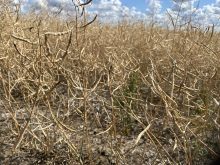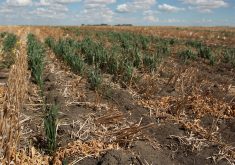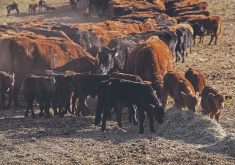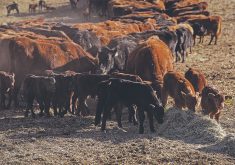Being a farmer isn’t for the faint of heart. The different daily risks can be overwhelming, from market fluctuations, political uncertainties and changing consumer preferences to the all-consuming weather.
Many farming practices such as crop rotations, herd health practices, crop insurance and forward contracts have been implemented to mitigate risks.
As part of the core business risk management programs offered by Agriculture Canada, one program to help reduce risk is the Advance Payments Program (APP). This is a federal loan guarantee that gives easy access to low-cost cash advances to agriculture producers.
Read Also

Trump’s trade policies take their toll on Canadian producers
U.S. trade policy as dictated by president Donald Trump is hurting Canadian farmers in a multitude of ways.
Other core programs are AgriStability, AgriInvest and AgriInsurance.
The APP is aimed to alleviate financial risks by ensuring cash flows are available to meet farmers’ financial needs before they sell their agricultural products. It gives the ability to sell in the market when it better suits a business strategy rather than because cash is needed.
The program provides up to $1 million in advances based on 50 per cent of the projected value of eligible agricultural products produced or already stored. Security is required for the advances, which is normally the product the payments are based on.
In a situation where the product is animals or is not storable, additional security may be required. This may be in the form of eligible program proceeds.
Payments from the APP can be in one advance or spread over multiple advances totalling up to the $1 million maximum. Repayment occurs when the product associated with the advance is sold. The repayment period varies between 18 and 24 months, depending on the product.
There are more than 500 crop and livestock products deemed eligible. They fall within these categories:
• crops
• grains and oilseeds
• fruits and vegetables
• livestock
• specific breeding animals intended to be marketed during the production period
• fur pelts and cervid antler velvet
• honey and maple syrup
Agricultural products not eligible include livestock under supply management (for example dairy cows or poultry), animals sent for slaughter or breeding animals not intended to be marketed during the production period.
Another benefit of the APP is that the federal government will pay the interest on the first $100,000 of the advance. In prior years, 2022 and 2023, this interest-free amount was increased to the first $250,000 and $350,000, respectively.
On March 25, federal agriculture minister Lawrence MacAulay raised the interest-free amount to the first $250,000 for the 2024 program year. The increase aimed to allow producers to retain this cash flow to cover increased input and other production costs.
The program is delivered by administrators, among them 27 participating producer organizations such as the Canadian Canola Growers Association, Manitoba Livestock Cash Advance and Western Cash Advance Program. For a full list of organizations, see the APP website.
Research the various organizations available in your area because administrators may have varying fees and interest rates. The administrators will guide you through the application process and repayment agreement.
As the types and severity of risks grow, it is important to educate ourselves with different options available to mitigate them. The APP is one of many available that can help reduce the risk of irregular cash flows through different production cycles.
Colin Miller is a chartered accountant and partner with KPMG’s tax practice in Lethbridge. Contact: colinmiller@kpmg.ca.















